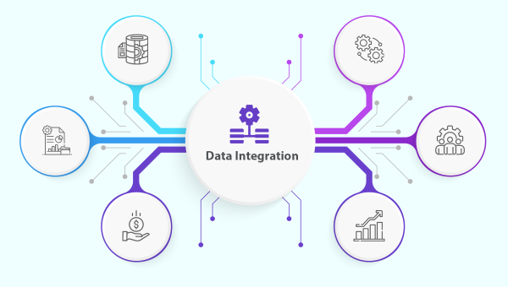
The Role of Data Integration in Driving Business Growth
In today’s data-driven world, businesses are constantly seeking ways to leverage their data effectively to drive growth and stay ahead of the competition. One key aspect that plays a vital role in this endeavor is data integration. In this blog post, we will explore how data integration can significantly impact business growth, improve decision-making processes, and unlock new opportunities.
Understanding Data Integration:
Data integration refers to the process of combining data from disparate sources, systems, or formats into a unified and consistent view. It involves transforming, cleansing, and harmonizing data to ensure accuracy, consistency, and accessibility. By integrating data, businesses can break down information silos and create a comprehensive view of their operations, customers, and market dynamics.
In many organizations, data is scattered across different departments, systems, and databases, resulting in isolated pockets of information known as information silos. Data integration bridges these silos by consolidating data from multiple sources, allowing for a holistic view of business processes. This enables improved collaboration, data sharing, and a deeper understanding of interdependencies, fostering better decision-making across the organization.
Streamlining Operations:
In today’s fast-paced business environment, efficiency is crucial. Data integration streamlines operations by automating data flows and reducing manual efforts in data consolidation and transformation. By eliminating redundant tasks, businesses can allocate resources more effectively, enhance productivity, and focus on value-added activities. Integrated data also enables real-time updates, facilitating faster and more accurate decision-making.
Enhancing Customer Experience:
Data integration allows businesses to consolidate customer data from multiple touchpoints, such as sales, marketing, customer service, and digital interactions. By integrating this data, organizations can create a comprehensive and unified view of each customer. This holistic understanding enables businesses to personalize interactions, tailor products or services, and deliver relevant and targeted experiences that resonate with customers.
With integrated customer data, businesses can personalize interactions at every touchpoint. By leveraging insights derived from integrated data, organizations can understand individual preferences, behavior patterns, and purchase history. This enables them to provide personalized recommendations, customized offers, and tailored communications that meet the specific needs and interests of each customer. Personalization enhances the customer experience, making customers feel valued and understood.
Driving Data-Backed Insights:
Integrated data brings together information from various sources, systems, and departments, eliminating data silos that hinder comprehensive analysis. By integrating data, businesses ensure that insights are derived from a unified and consistent dataset. This consolidation allows for a holistic view, reducing the likelihood of errors and inconsistencies that can skew analysis results.
Enabling Real-time Decision Making:
Integrated data enables organizations to perform holistic analysis that spans across different aspects of the business. By integrating data from multiple sources such as sales, marketing, finance, and operations, businesses gain a comprehensive understanding of their operations and market dynamics. This holistic analysis provides a solid foundation for informed decision-making and strategic planning.
Supporting Scalability and Innovation:
Data integration allows businesses to streamline their operations and systems, providing a scalable infrastructure. By integrating data from various sources, businesses can establish a unified and centralized data repository that supports growth and expansion. This streamlined approach eliminates redundancies, improves efficiency, and ensures that as the business grows, data remains accessible, manageable, and scalable.
Data integration is a critical driver of business growth in today’s data-driven landscape. By prioritizing data integration, businesses can gain a competitive edge, improve operational efficiency, enhance customer experiences, and unlock new opportunities for growth. Organizations that leverage integrated data effectively are well-positioned to navigate market complexities, make informed decisions, and drive sustainable business success in an ever-evolving business environment.

An intriguing discussion is worth comment. I do think that you should publish more on this topic, it might not be a taboo subject but generally people dont speak about such subjects. To the next! Cheers!!